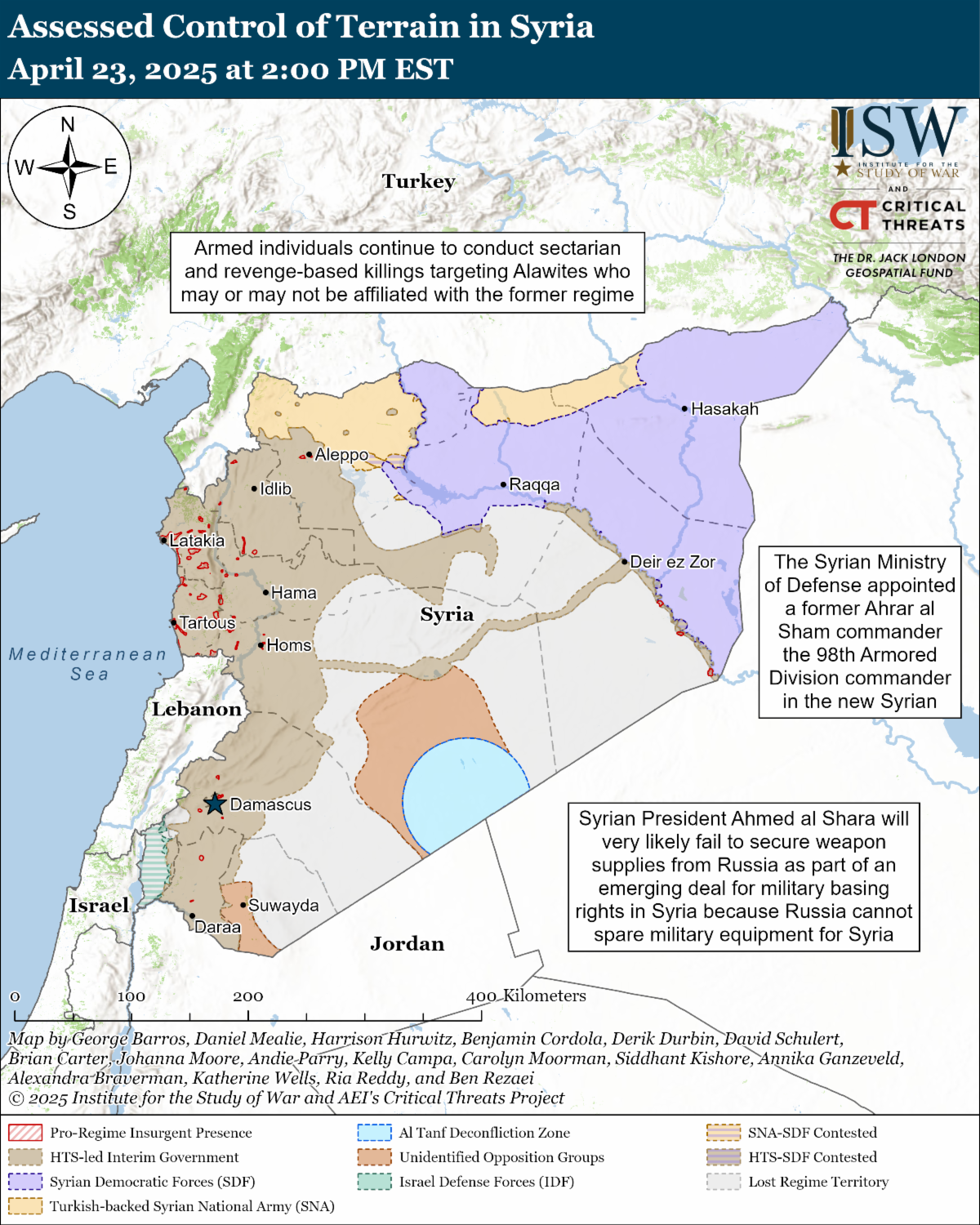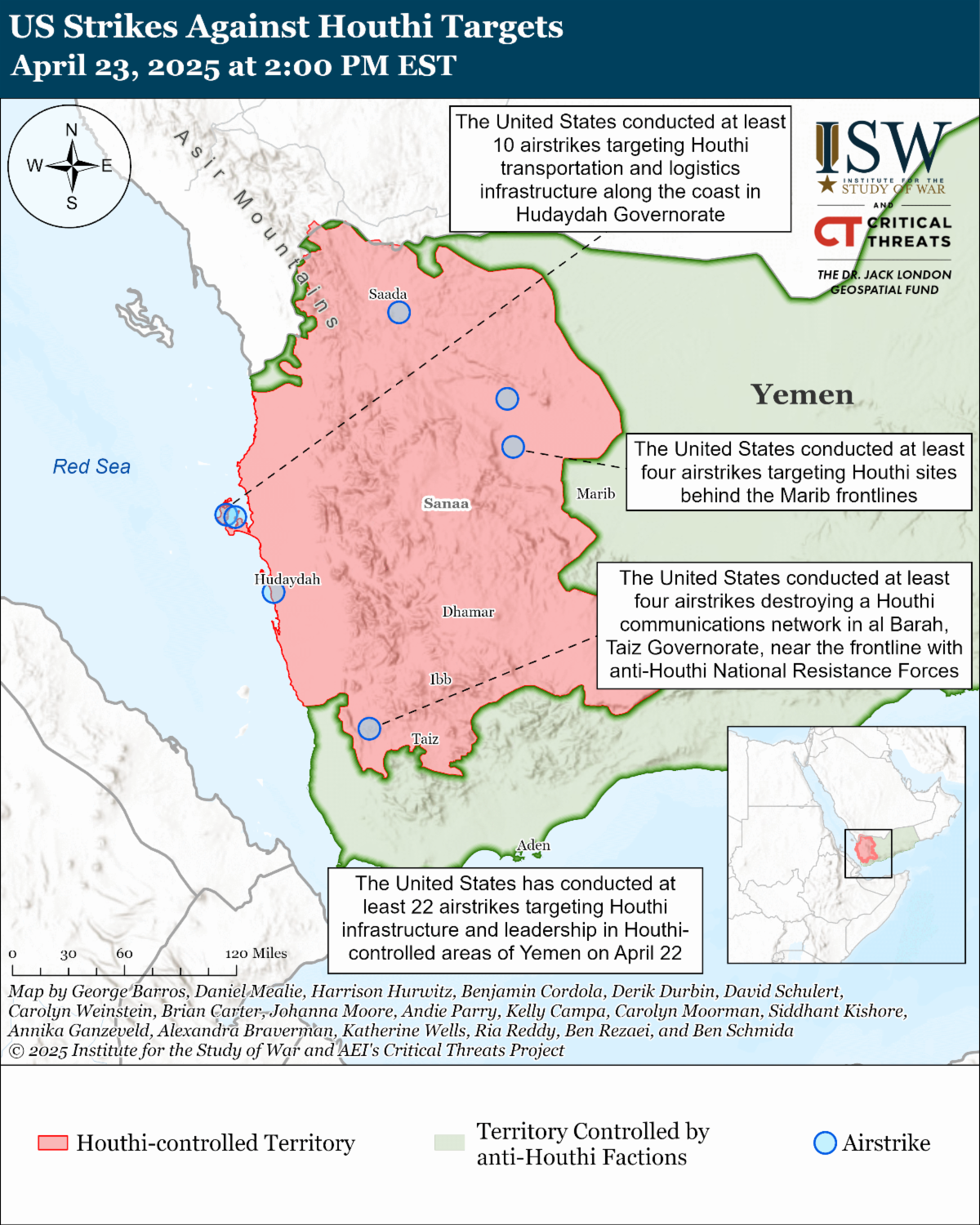A Salafi-jihadi group ideologically close to the Islamic State (IS) is conducting extrajudicial killings against Syrians perceived to be tied to the now-deposed Bashar al Assad regime. The group—Saraya Ansar al Sunnah—called for the killing of an Assad informant in Aleppo on April 13 and has claimed two killings targeting informants since then. The group has conducted 19 other attacks targeting former Assad officials and the Alawite minority in western Syria as well. The group has also announced that it will attack the Druze community in southwestern Suwayda Province.
Saraya Ansar al Sunnah appears to support IS and share its extremist ideology. The group has stated that it seeks to excommunicate the “apostates” who fought IS, suggesting that the group opposes Assad supporters and the transitional government and could eventually fight both. The group has also stated that it rejects worldly laws and modern borders, meaning that it recognizes neither the transitional government nor the borders of the Syrian state. These statements indicate that Saraya Ansar al Sunnah would only acknowledge an Islamic polity under its interpretation of Sharia law, and that does not conform to internationally recognized borders. These views are extremely close to those of IS. The group denied that it cooperates with IS but acknowledged that cooperation “may happen in the future and will be announced as [it] happens.”
Iran continues to coordinate with China and Russia on nuclear issues ahead of talks with the United States, highlighting growing alignment between major US adversaries. Iranian Foreign Affairs Minister Abbas Araghchi met with Chinese Vice Premier Din Xuexiang and Foreign Affairs Minister Wang Yi in Beijing, China, on April 23 to discuss nuclear negotiations and deliver a written message from Iranian President Masoud Pezeshkian. Araghchi emphasized Iran’s intent to brief China, alongside Russia, on all nuclear-related developments, citing China’s roles as a UN Security Council and International Atomic Energy Agency (IAEA) Board member. Unspecified diplomatic sources told anti-regime media that Araghchi also carried a written message from Iranian Supreme Leader Ali Khamenei to Chinese President Xi Jinping, affirming that the any agreement with the United States ”solely intended to reduce tensions” and Iran will not alter its ”Look to the East” policy or the terms of its 25-year Sino-Iranian cooperation agreement. The Look to the East policy aims to strengthen ties with non-Western countries, like China, to expand its global partnerships and boost its economic and political interests. China also remains the largest importer of Iranian oil. China’s Iranian oil imports help Iran circumvent US sanctions. Iran reportedly seeks to include provisions in a potential nuclear deal to guarantee oil exports—especially to China—and prevent future US “maximum pressure” sanctions that could disrupt its energy revenues.
US Central Command (CENTCOM) has conducted at least 22 airstrikes targeting Houthi infrastructure and leadership in Houthi-controlled areas of Yemen on April 22. CENTCOM conducted at least three airstrikes targeting Houthi barracks in Majzar District, Marib Governorate, and an unspecified number of airstrikes targeting Houthi facilities in Hazm District, al Jawf district Governorate, both of which are behind the Marib frontlines. CENTCOM also conducted at least four airstrikes targeting Houthi facilities on Kamaran Island, at least two airstrikes targeting al Salif Port, and at least four airstrikes targeting Hudaydah Airport, all in Hudaydah Governorate. CENTCOM struck a Houthi communications site in western Taiz Governorate behind the Houthi-National Resistance Forces frontline. The National Resistance Forces are one of several factions loyal to the Yemeni government.
Key Takeaways:
- Salafi-Jihadi Group in Syria: A Salafi-jihadi group ideologically close to the Islamic State (IS) is conducting extrajudicial killings against Syrians perceived to be tied to the now-deposed Bashar al Assad regime. The group has stated that it seeks to excommunicate the “apostates” who fought IS, suggesting that the group opposes Assad supporters and the transitional government and could eventually fight both. The group likely seeks to destabilize Syria’s fragile transition.
- Iranian Nuclear Program: Iran continues to expand its nuclear infrastructure near Natanz.
- Iran, China, and Russia Continue Cooperation: Iran continues to coordinate with China and Russia on nuclear issues ahead of talks with the United States, highlighting growing alignment between major US adversaries.
- Syria and Russia: Syrian President Ahmed al Shara will very likely fail to secure weapon supplies from Russia as part of an emerging deal for military basing rights in Syria because Russia cannot spare military equipment for Syria.
| 





 [ISW] 이란 업데이트, 2025년 4월 21일
[ISW] 이란 업데이트, 2025년 4월 21일